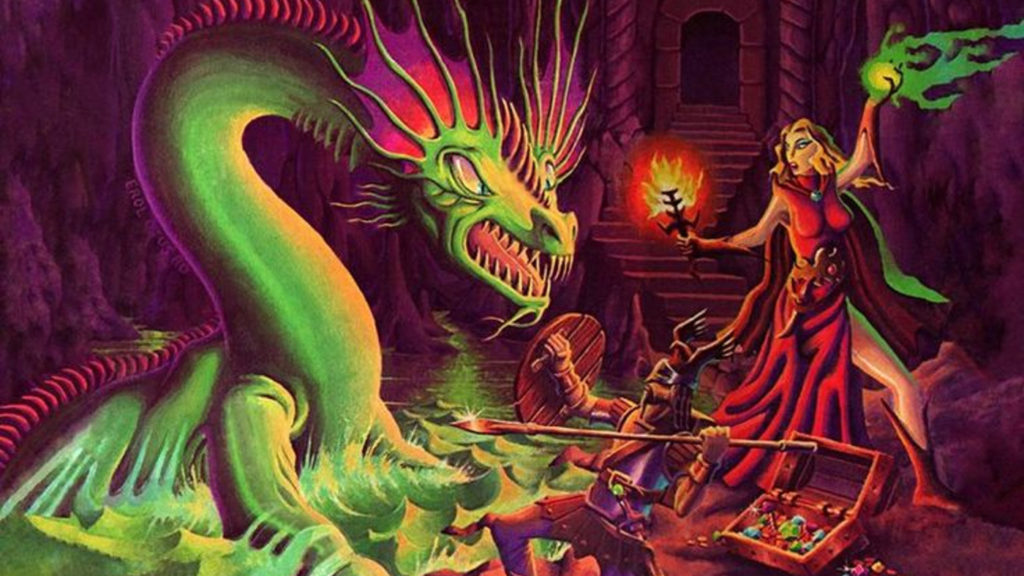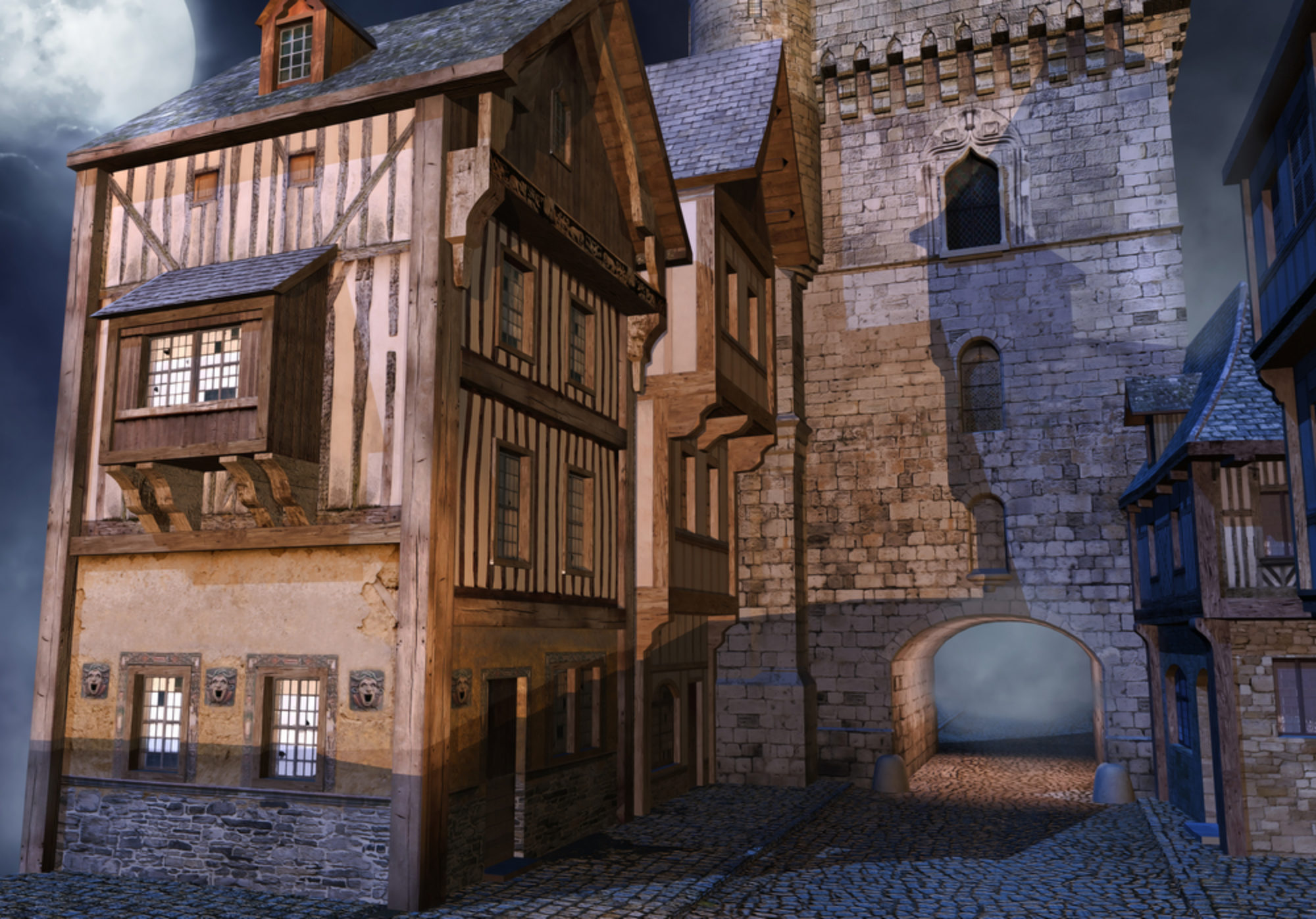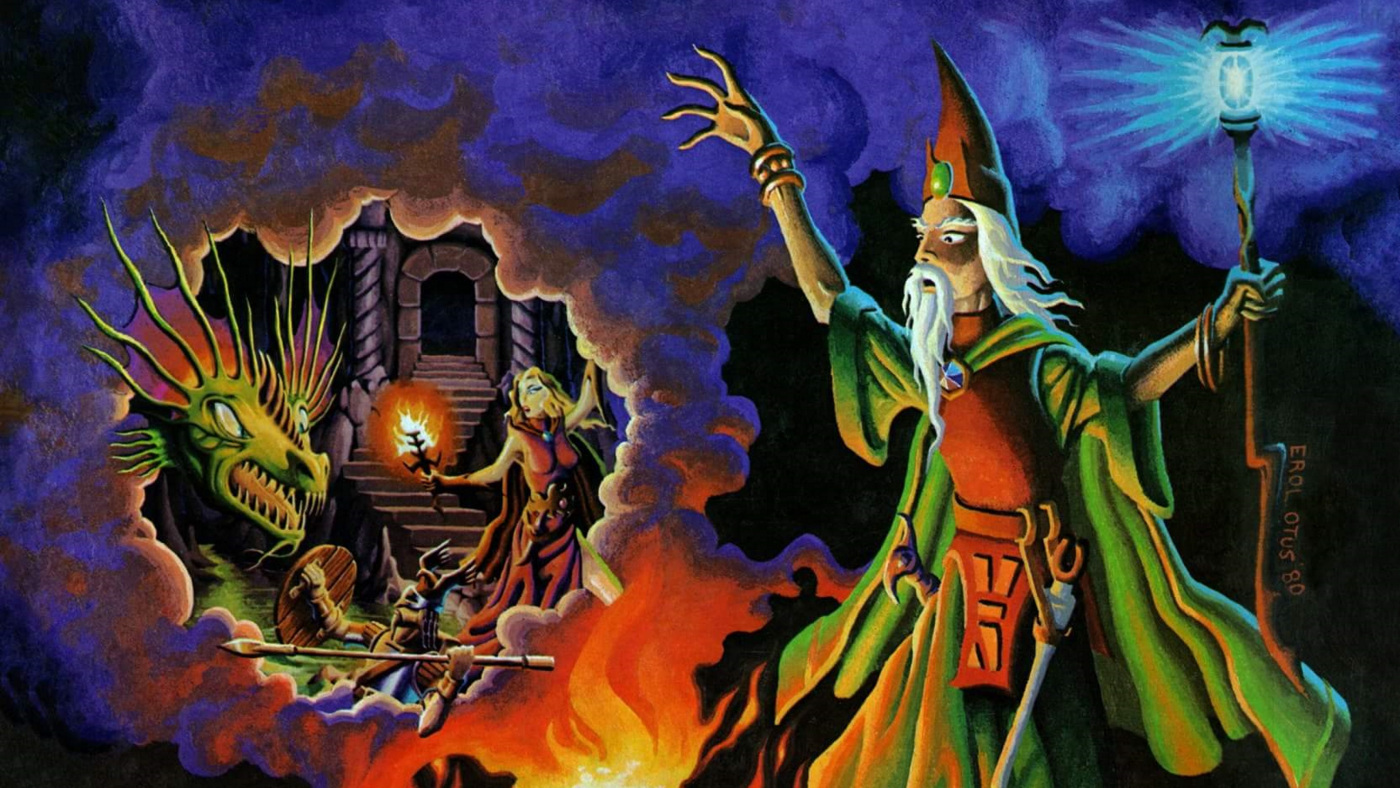Wizards in Dungeons and Dragons have been in the game since the very beginning. Originally they were called Magic Users. The inspirations for this class being present in the game are myriad. Some of the known inspirations include:
- Gandalf from Lord of the Rings and the Hobbit
- Merlin from the legends and stories of King Arthur
- Jack Vance’s story “The Dying Earth”
Dungeons and dragons initially adopted the system of magic defined in Jack Vance’s novels and stories. A wizard memorized spells from a spell book and when the spell was cast….it was forgotten. This makes the wizard a powerful character but gives the wizard a great weakness. Once spells are used….the wizard becomes less powerful. When all spells have been used….the wizard is nearly powerless.
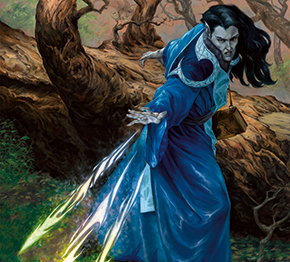
Wizards in Original Dungeons and Dragons
The magic user was one of the original three classes available. The other two were fighting men and clerics. Other classes were added soon after. But the magic user (wizard) was there at the very beginning.
The magic user was a weak character physically. But the magic user was incredibly intelligent. This intelligence made up for physical weakness by giving the wizard the power of magic. Magic users were also present in Basic and Expert editions.

Wizards in Dungeons and Dragons 1st Edition
The magic user was a standard class in the 1st edition Player’s Handbook. The list of available spells was exponentially increased from Original Dungeons and Dragons. The array of spells now available was absolutely awesome to the player looking ahead at the development of their character.
Unlike other editions (including many later editions) spells were not automatically known by a player. Finding spell books and scrolls was of paramount importance to the magic user. Finding new spells was as important to the player as finding new magical items. Perhaps even more important.
Spell scrolls could be used for casting a spell once….or they could be written into the player’s spell book to be memorized many times for use.
In 1st edition the Illusionist was a sub-class of the magic user. The Illusionist was a wizard of an entirely different type.
High intelligence was a prerequisite of becoming a magic user in 1st edition. Without high intelligence high level spells could never be learned.

Wizards in Dungeons and Dragons 2nd Edition
In Second Edition the Wizard was the group type which included mages and other types of spell casters. Second Edition no longer used the words “Magic User” and instead substituted the word “mage.”
Unlike 1st edition Second allowed the player to create a more specialized mage. One could select from several schools of magic or play a generalist mage. The Complete Wizard’s Handbook further expanded upon this specialization. And the Tome of Magic provided for new spells and magical items for the game.
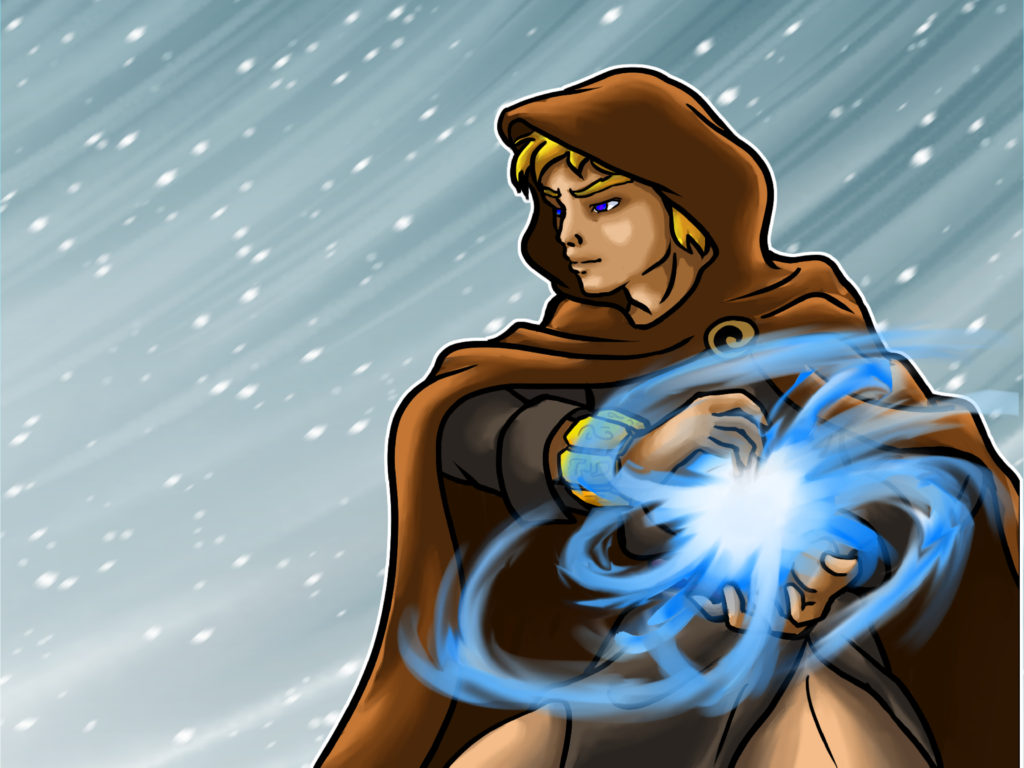
Wizards in Dungeons and Dragons 3rd Edition
Mages were renamed Wizards for this edition of the game. Different schools of magic existed for the wizard to develop in. Wizards in this edition were proficient in “arcane magic.”

Wizards in Dungeons and Dragons 4th Edition
Wizards in this edition focus on using spells that can damage multiple targets or those which can alter the battle terrain or remove protections from the enemy (debuffing). This edition also offered alternative wizard kits in which to develop the character.

Wizards in Dungeons and Dragons 5th Edition
Fifth Edition Wizards select from eight schools of magic. These schools are diverse and allow one wizard to be much different than the next. Such schools of magic include:
- Abjuration – focuses on blocking, banishing and protecting
- Conjuration – focuses on creating or producing creatures or things out of thin air
- Divination – focuses on understanding the past, present and future
- Enchantment – focuses on entrancing and beguiling enemies
- Evocation – focuses on inflicting damage on enemies
- Illusion – focuses on deception, guile and trickery
- Necromancy – focuses on curses and creating and controlling the undead
- Transmutation – focuses on changing energy and matter
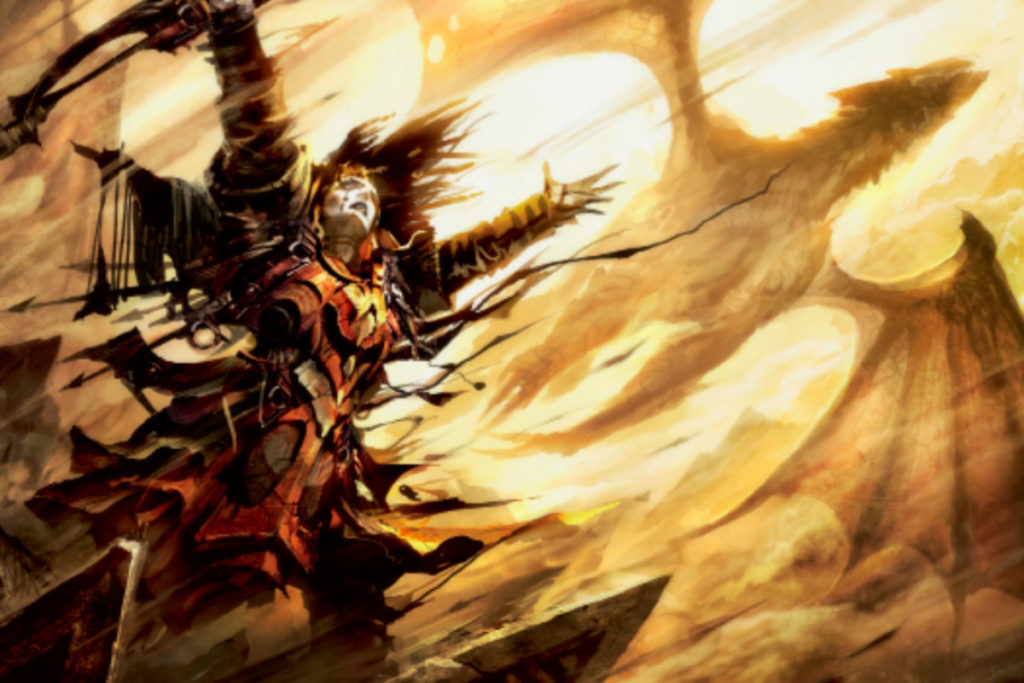
Vancian Magic in Dungeons and Dragons
Fire and forget magic is pretty much an idea exclusive to Dungeons and Dragons. Many other fantasy games came out shortly after Dungeons and Dragons. The differences in most of those systems revolved around the magic system.
The fire and forget magic system was unpopular with many players who wanted the wizard class to be far more powerful. Gary Gygax and the designers of the various early editions of Dungeons and Dragons thought differently. They sought to create balance in the game for maximum playability. They understood, from the very beginning, that the magic user class would soon take over the game if the caster could just cast any spell at any time. Sadly….later editions of the game seemed to forget this concept and suffer because of it.

Resting is of vast importance in Dungeons and Dragons. This is especially true for spell casters. Without rest the spells stay forgotten (or in later editions the spell slots stay empty). Resting allows the caster to regain spells that were used previously or memorize new ones (in those early editions).
In the early editions a wizard could only memorize spells with a sufficiently safe and quiet place to study. The Wizard was required to have access to a spell book to study in order to memorize spells.

Spells in the early editions did not cast immediately. Their use could be interrupted during combat by striking the wizard or causing the wizard to have to dodge melee attacks or missiles.
Spells in the early editions of the game had three components:
- Somatic
- Verbal
- Material
These spell component requirements further limited the abilities of spell casters to dominate play.
Somatic components involved specific hand motions that must be completed in order to cast a spell. Without the ability to use one’s hands one could not cast some spells. A magic user whose hands are tied, for example, would be unable to use the proper hand motions to cast a spell.
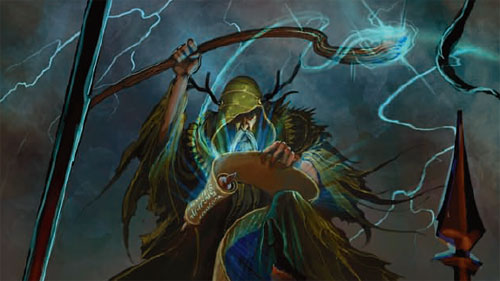
Verbal components indicated the specific words of the incantation required to cast a particular spell. If the magic user was unable to speak (silenced or gagged) he or she could not cast a spell.
But Material components were the most restrictive. Some spells required very rare or very valuable materials in order to cast. Without such components the spell is not possible to use. Such rare components might even require an adventure of their own to obtain.
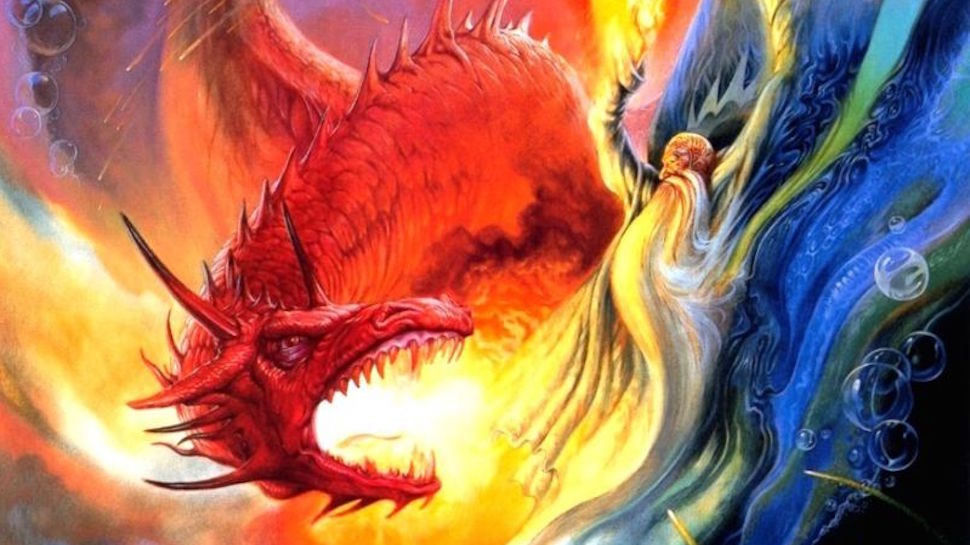
These components could greatly cut down on the potential overuse of particularly damaging and powerful spells.
Later editions of the game removed many of these restrictive things that balanced out the game play in early editions.

Wizard Spell Books in Dungeons and Dragons
Often the most powerful magical item that a high level wizard might own in early editions of Dungeons and Dragons was their own spell book. Spell books that contained many spells of each level could be worth far more than their weight in gold. A magic user finding such a spell book in an adventure would be so engrossed in studying this new spell book that it would be unlikely that they would take any interest in any other treasures obtained.
Scrolls found in a dungeon could also be of extreme value to a wizard. Scrolls were found far more often than whole books and individual scrolls might reveal new spells of high level.
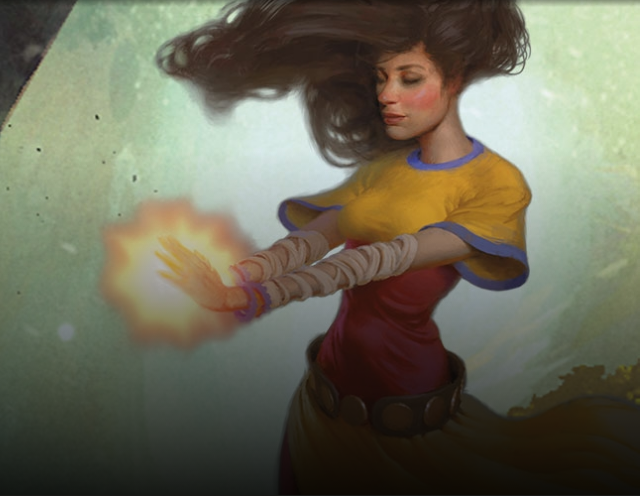
Wizards in Dungeons and Dragons Could be Physically Weak but Mentally Powerful
In the early editions a wizard required others in order to successfully explore dungeons and caves. While the wizard could wield powerful magic the wizard was generally physically weak. They had few hit points. The could wear little in the way of armor or protective gear. This made then an easy target for any creature that could get close. Fighters, healers and thieves were essential the the survival of a wizard to higher levels.
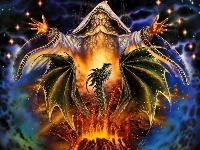
Wizards in Dungeons and Dragons are a Popular Character Class
It is a rare thing to see a Dungeons and Dragons group travel without a wizard or spell caster of some type in the group. Wizards have become much loved characters in fantasy films such as Lord of the Rings. Virtually everyone who plays Dungeons and Dragons for the first time looks upon the wizard spells in the Player’s Handbook and thinks about how powerful they could become if they played such a character.
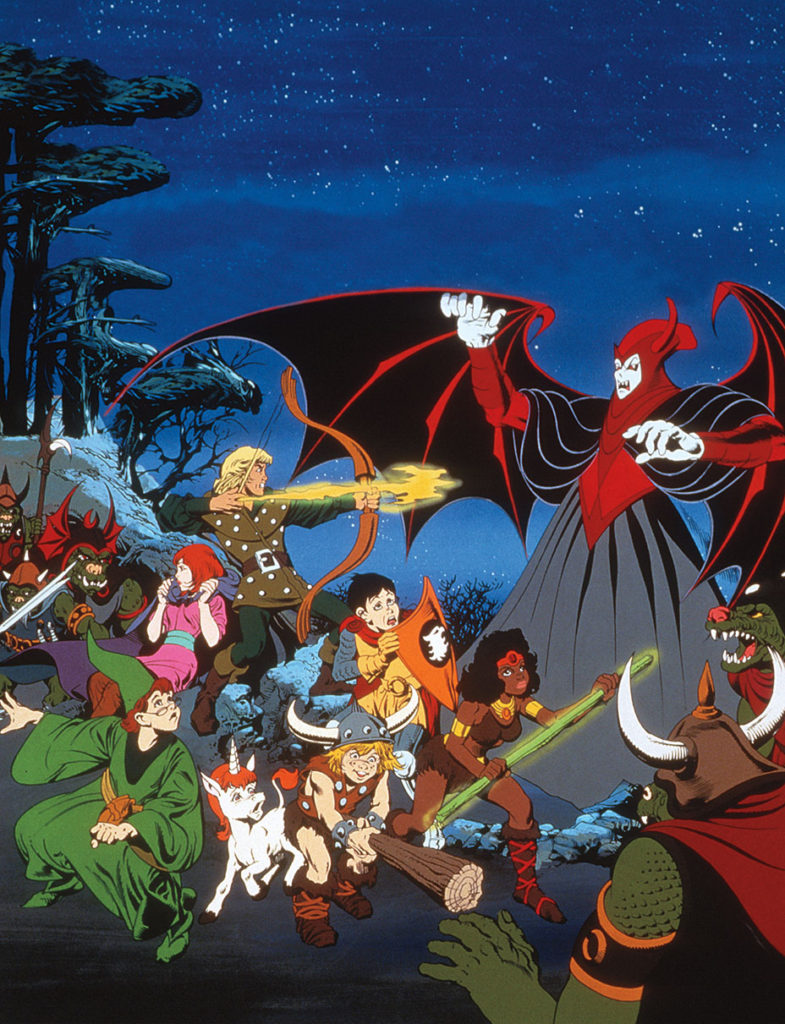
If you enjoyed this article then you might enjoy these:
